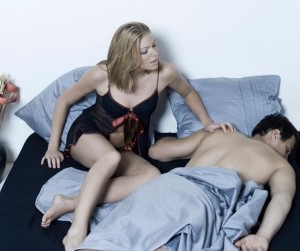Drinking alcohol has a number of effects on sex and sexual behavior. There is a strange counterbalance between alcohol and sex: the suppressive effects of alcohol on sexual functioning decreases sexual activity, yet at the same time its suppression of psychological inhibitions, increases the desire for sex.
Alcohol is a depressant; it causes the body’s systems to slow down. Often, feelings of drunkenness are associated with elation and happiness but other feelings of anger or depression can also arise. Balance, judgment, and coordination are also negatively impacted. One of the most significant short term side effects of alcohol is reduced inhibition. The relationship between alcohol and sex here becomes significant because reduced inhibitions can lead to an increase in sexual behavior.
Alcohol and Sex in Men
Men’s sexual behaviors can be affected dramatically by alcohol. Both chronic and acute alcohol consumption inhibit the production of testosterone. Because testosterone is critical for libido and physical arousal, alcohol tends to have damaging effects on male sexual performance. Alcohol intoxication can decrease sexual arousal, decrease pleasure and intensity of orgasm, and increase difficulty in attaining orgasm. Therefore, contrary to the belief that alcohol and sex go hand-in-hand, as demonstrated in the social practice of meeting people at bars, alcohol only serves to negatively impact sexual performance in men.
Alcohol and Sex in Women
Women have a different response to alcohol intoxication than men. In many women, alcohol and sex seem to complement each other more than men, alcohol and sex. Women’s sexual arousal and desire, is increased with the intake of alcohol however it lowers the signs of arousal. Studies have shown that acute alcohol consumption tends to cause increased levels of testosterone and estradiol. Since testosterone controls in part the strength of libido in women, this tends to cause an increase in interest in sex. Also, because women have a higher percentage of body fat and less water in their bodies than men, alcohol can have a quicker and more dramatic impact. Women’s bodies take longer to process alcohol; that is, a woman’s body often takes one-third longer to eliminate alcohol from their system.
For women, alcohol and sex is also different in their sexual behavior. Studies have shown that increased BAC is associated with longer periods of orgasmic inactivity and decreased intensity of orgasm. Some women report a greater sexual arousal with increased alcohol consumption as well as increased sensations of pleasure during orgasm.
Psychologically speaking, alcohol plays a role in women’s sexual behavior. Women who were intoxicated then reported that they believed they were more sexually aroused than before their consumption of alcohol. This psychological effect contrasts with what the physiological effects were measured to be. This again supports the belief that alcohol and sex is affected because drinking alcohol leads to a loss of inhibitions. Often, alcohol can influence the capacity for a woman to feel more relaxed and in turn, be more sexual because she is not as inhibited as she would be if she was sober.
Sources:


